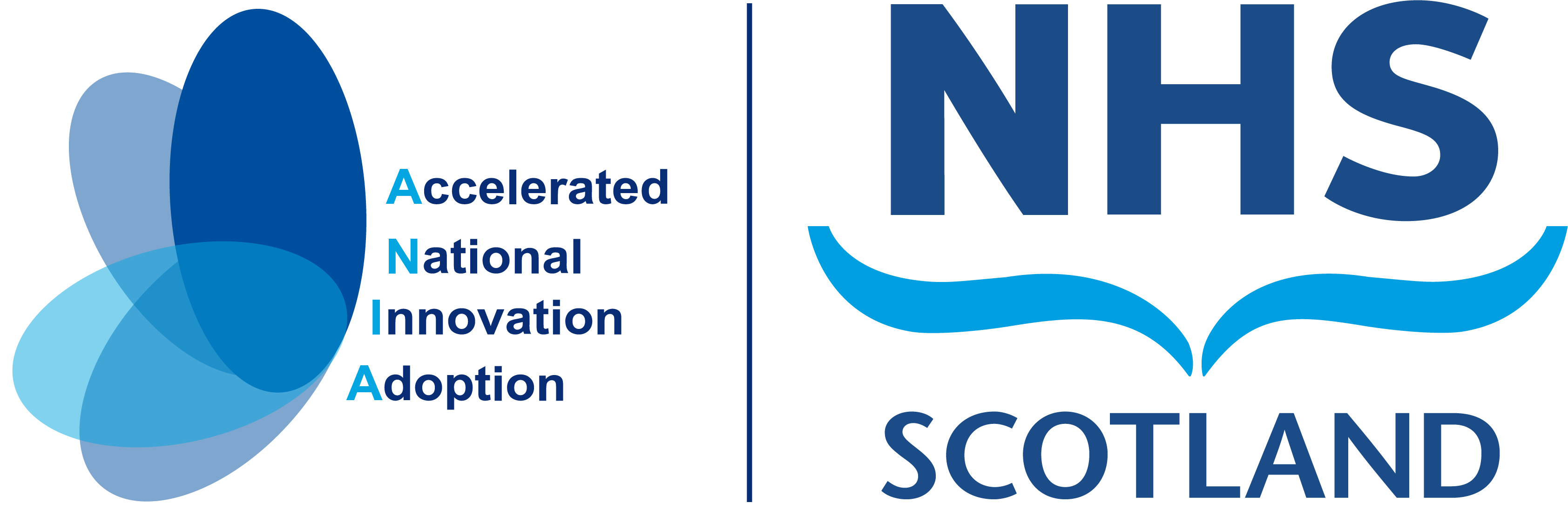New innovations transforming patient care across Scotland
Building on the commitments set out in the NHS Scotland Service Renewal Framework, patients across Scotland are already seeing the benefits of a national programme designed to bring the latest proven healthcare technologies into the NHS faster.
The Accelerated National Innovation Adoption (ANIA) pathway, established 3 years ago, is helping clinical staff across all parts of Scotland to quickly access new, high impact technology that will improve patient care, save lives, and reduce pressure on the NHS.
Led by the Centre for Sustainable Delivery at NHS Golden Jubilee, ANIA works with partners across Scotland to identify innovations that are safe, effective, and ready to be rolled out nationally.
How patients are benefiting today
- Dermatology made faster and easier – General Practitioners (GPs) across Scotland can now securely attach photos of skin conditions to referrals using a simple app. Already more than 8,000 patients have had images included with their referral, helping specialists make faster decisions.
This allows patients to be digitally triaged, quickly assessed and either sent back to their GP with advice, added to the waiting list, or fast tracked direct to treatment for conditions such as suspected skin cancer.
All NHS Scotland Boards are now adopting the ‘Digital Dermatology’ pathway.
- Protecting newborn babies’ hearing – A quick genetic test is now available in NHS Greater Glasgow and Clyde to identify newborns who could lose their hearing from an emergency antibiotic which can be used to fight serious infections. Once fully adopted, around 3,300 babies will be tested every year, preventing 6–7 babies annually from becoming deaf. This test will be rolled out nationally over the next 18 months by the ANIA programme.
- Safer treatment for stroke patients – New genetic testing means patients who have had a stroke can be given the drug that will be most effective at reducing their risk of a secondary stroke. This will benefit more than 6,500 people every year, reducing the risk of another stroke. This is currently available in NHS Tayside, and will be rolled out by the ANIA programme to all Boards within 12 months from October 2025.
- Digital Type 2 Diabetes Remission – Thousands more people will be supported to reverse their Type 2 diabetes through a new digital intensive weight management programme. This programme aims to treat 3,000 people over a 3 year period from January 2026.
- Spotting heart problems earlier – From November 2025, lightweight ECG patch monitors will begin replacing the older clunky devices for patients recovering from stroke. Worn comfortably for up to 14 days, these patches give doctors a clearer picture of the heart rhythm, helping to detect problems sooner.
This is anticipated to be up to 4 times more effective at identifying, and treating Atrial Fibrillation (AF) and prevent hundreds of avoidable strokes. This will also allow patients to be treated and diagnosed in a much shorter timescale. This will be rolled out nationally over the course of 12 months from launch.
ANIA is governed by the Innovation Design Authority (IDA), co-chaired by Chief Scientist (Health), Professor Dame Anna Dominiczak and Chair of Scottish Ambulance Service, Tom Steele. The IDA brings together senior NHS and Scottish Government leaders to prioritise and approve national innovations.
Professor Dame Anna Dominiczak said: “The ANIA pathway has given Scotland a unique, world-leading model for adopting innovation at scale. By combining clinical evidence, robust evaluation, and national leadership, we are delivering life-changing benefits for patients and ensuring the NHS remains sustainable for the future.
“This programme is already changing lives. From protecting newborn babies to giving stroke patients the best possible chance of recovery, we are showing how Scotland can lead the way in bringing innovation directly to patients.”
Carolynne O’Connor, Chief Executive of NHS Golden Jubilee, added: “This work demonstrates how collaboration across government, NHS, and academia can deliver practical, transformational change. Patients across Scotland are already seeing the benefits of ANIA, and the potential impact over the coming years is extraordinary.
“Patients, families and NHS staff are all benefiting from this joined-up national approach. The ANIA pathway means we can move quickly from good ideas to real-world improvements that make a difference every day.”
Since inception, the IDA has approved £10 million of Scottish Government investment in ANIA ground breaking programmes.
